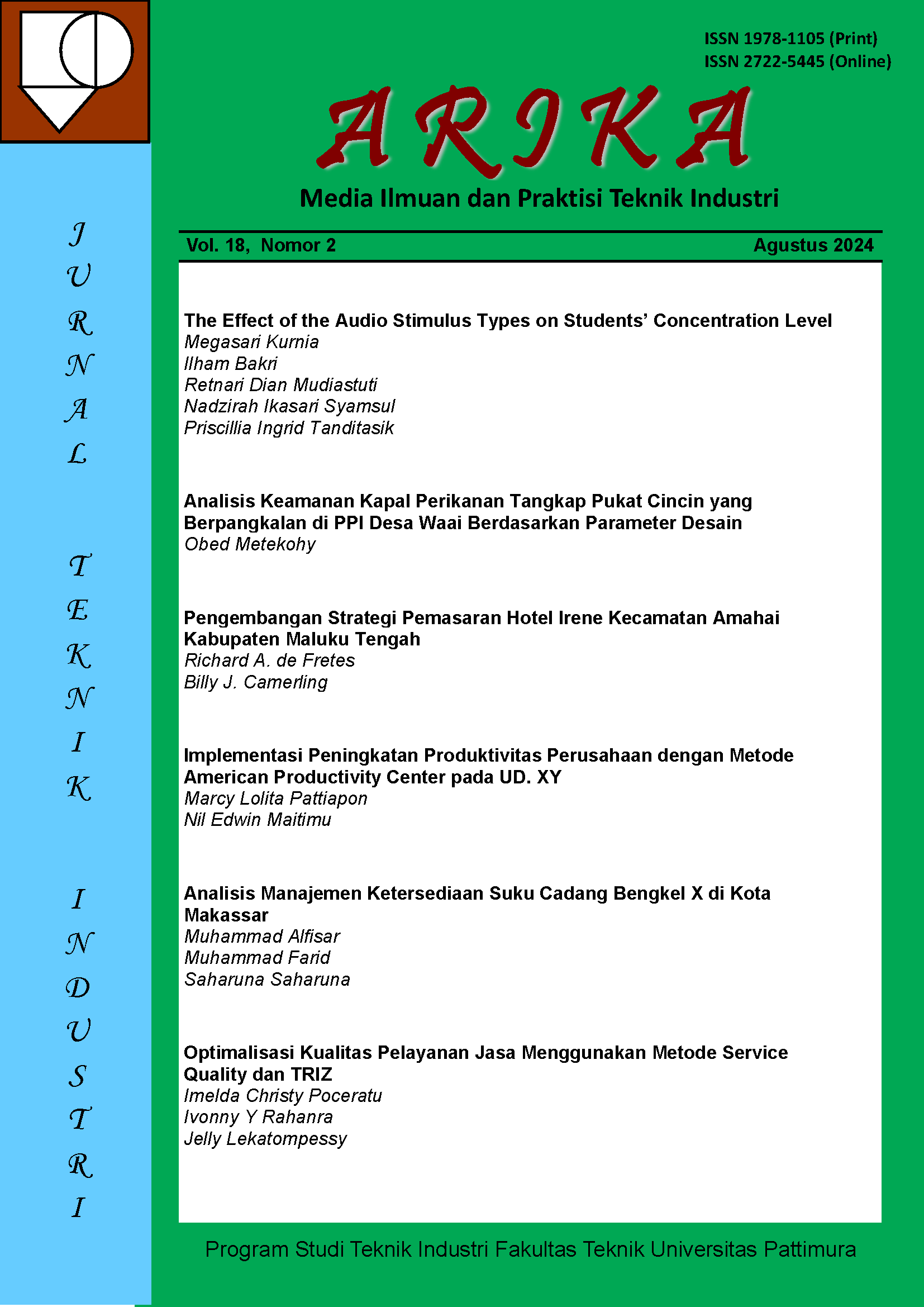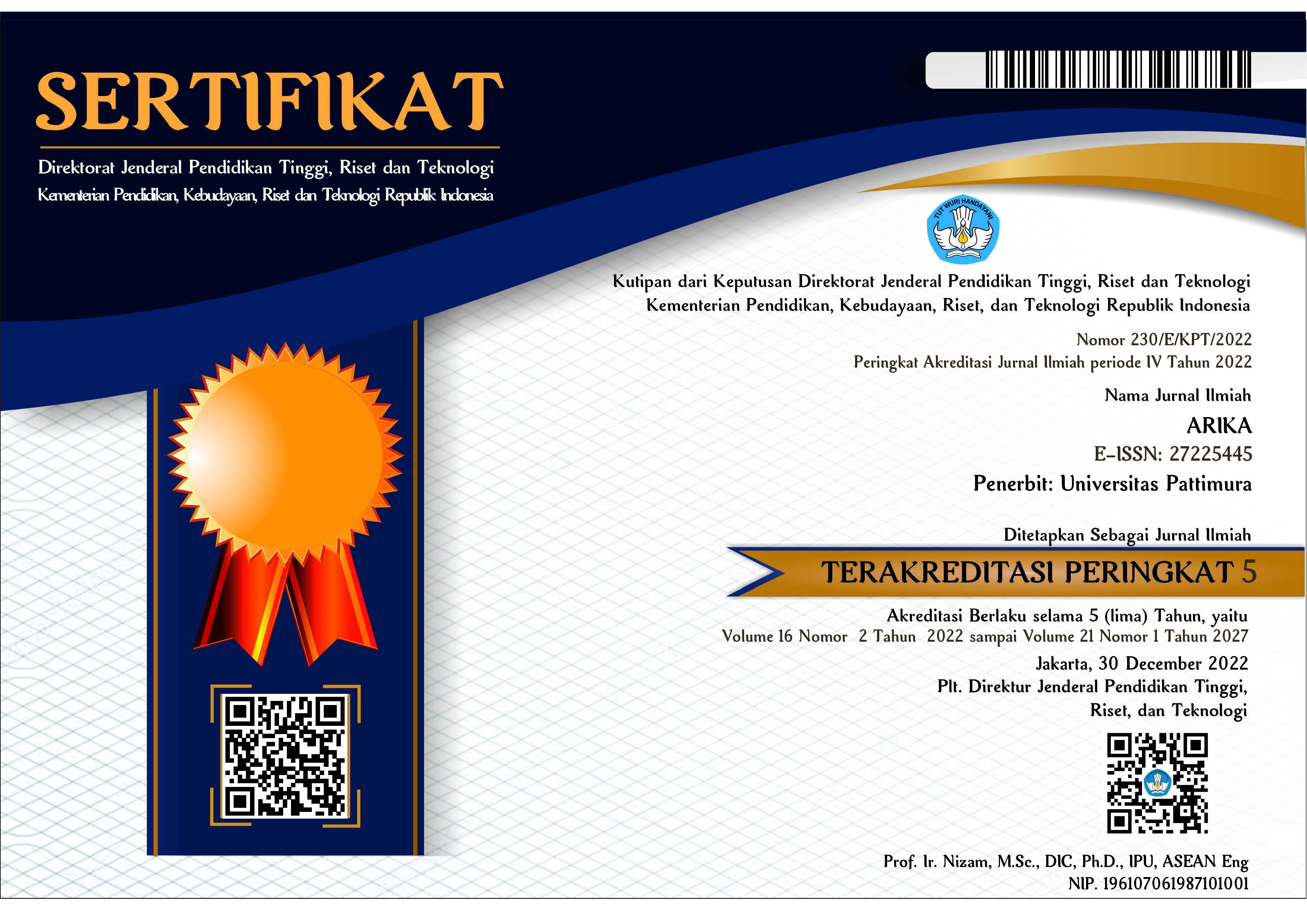Optimalisasi Kualitas Pelayanan Jasa Menggunakan Metode Service Quality dan TRIZ
Abstract
This study aims to measure the quality of service of Health Center X towards customer satisfaction and analyze the improvement of service quality of Health Center X towards customer satisfaction based on the Servqual method and develop improvements that can be made to improve service quality using the TRIZ method. The results of the analysis showed that there were 19 negative gaps with 5 attributes that had the largest gap values, including the politeness of officers in serving patients, the attention of officers to customer needs, the accuracy of officers in checking patient conditions, officers having enough time for patient consultations, and comfortable and beautiful health center rooms. The focus of improvements to be developed by Health Center X is that officers help customers by directly handling customer requests or solving customer problems, patient examinations are carried out carefully and seriously so that mistakes do not occur, doctors provide more time and attention to patients, even the latest information about the development of the patient's condition must be conveyed directly by the doctor to the patient, even changing the layout of the benches which were initially too close together when sitting and prone to contact with others, replacing facilities that are not suitable for use or repaired and adding entertainment facilities such as TV and adding decorations such as placing plants and flowers in the room.
Downloads
References
Asbar, Y., & Saptari, M. A. (2018). Analisa dalam mengukur kualitas pelayanan terhadap kepuasan konsumen menggunakan metode PIECES. Jurnal visioner & strategis, 6(2).
Uneputy C. C. 2016. Faktor-Faktor Yang Mempengaruhi Tingkat Kepuasan Masyarakat Terhadap Pelayanan Kesehatan Di Puskesmas Waihaong Dan Puskesmas Latuhalat. Skripsi. Ambon: Universitas Pattimura.
Kumayza & Nurhadi, T. 2014 "Analisis kualitas pelayanan pada kantor kecamatan tenggarong kabupaten kutai kartanegara." MAHAKAM: Jurnal Ilmu-Ilmu Sosial 3.1.
Nababan, M. C., Listiawaty, R., & Berliana, N. (2020). Analisis Kualitas Pelayanan Terhadap Kepuasan Pasien Di Puskesmas X Kota Jambi. Jurnal Kesmas Jambi, 4(2), 6-16.
Lesmana, R. (2019). Pengaruh Kualitas Produk Dan Kualitas Pelayanan Terhadap Kepuasan Konsumen Pt. Radekatama Piranti Nusa. Jurnal Pemasaran Kompetitif, 2(2), 115-129.
Maramis, F. S., Sepang, J. L., & Soegoto, A. S. (2018). Pengaruh Kualitas Produk, Harga Dan Kualitas Pelayanan Terhadap Kepuasan Konsumen Pada Pt. Air Manado. Jurnal EMBA: Jurnal Riset Ekonomi, Manajemen, Bisnis Dan Akuntansi, 6(3).
Nagara, N., Erlina, P. & Akmal, S. Analisis Peningkatan Kualitas Pelayanan Dengan Metode Servqual Dan Triz (Studi Kasus Pada “Cafe XYZ). Juminten: Satisfaction and Marketing Mix Jurnal Manajemen Industri dan Teknologi, 2020, 1.1: 76-86.
Poceratu, I. Ch., & Maitimu, N. E.. (2022) "APLIKASI METODE SERVICE QUALITY DALAM MENGANALISIS KUALITAS PELAYANAN PT. PLN (PERSERO) PLTD POKA AMBON." ALE Proceeding 5: 121-128.
Yuswandi, D. & Supriyanto, H. "Analisis Perbaikan Kualitas Layanan Penjualan Menggunakan Metode Servqual dan TRIZ Untuk Menciptakan Loyalitas Konsumen Pada CV. XYZ." Prosiding Seminar Nasional Sains dan Teknologi Terapan. Vol. 9. No. 1. 2021.
Copyright (c) 2024 Imelda Christy Poceratu, Ivonny Y Rahanra, Jelly Lekatompessy

This work is licensed under a Creative Commons Attribution-ShareAlike 4.0 International License.
An author who publishes in the ARIKA Jurnal agrees to the following terms:
- The author retains the copyright and grants ARIKA journal the right of first publication of the work simultaneously licensed under the Creative Commons Attribution-ShareAlike 4.0 License that allows others to share the work with an acknowledgment of the work's authorship and initial publication in this journal.
- The author is able to enter into separate, additional contractual arrangements for the non-exclusive distribution of the journal's published version of the work (e.g., post it to an institutional repository or publish it in a book) with the acknowledgment of its initial publication in this journal.
- The author is permitted and encouraged to post his/her work online (e.g., in institutional repositories or on their website) prior to and during the submission process, as it can lead to productive exchanges, as well as earlier and greater citation of the published work (See The Effect of Open Access).










